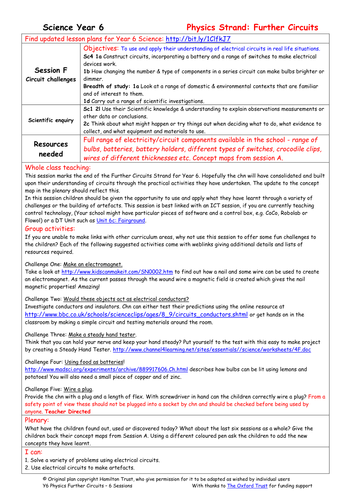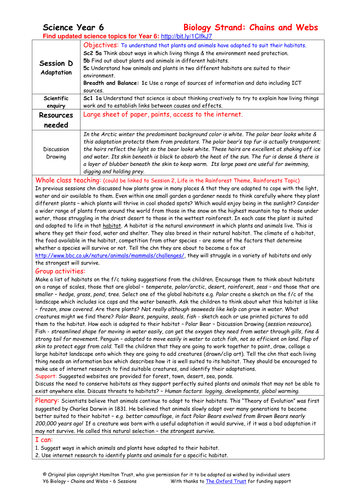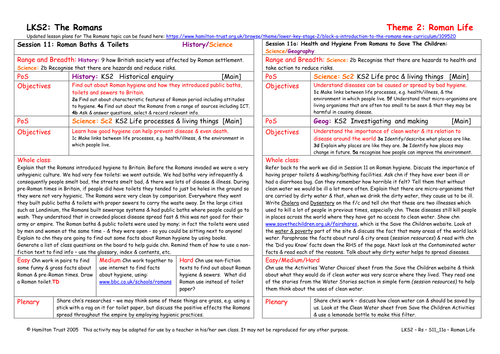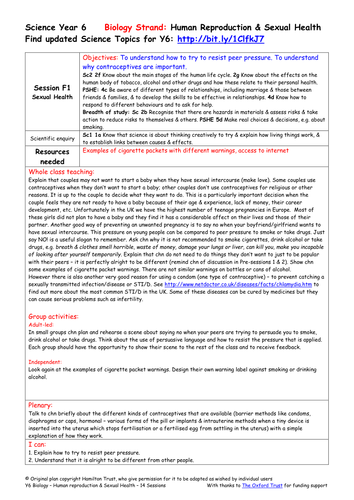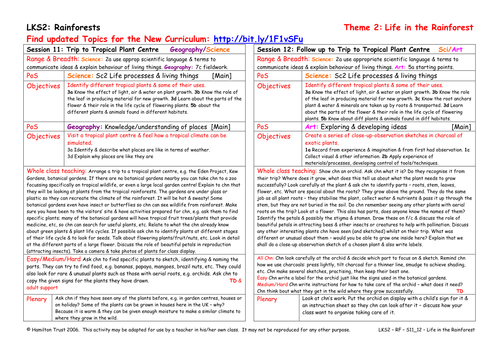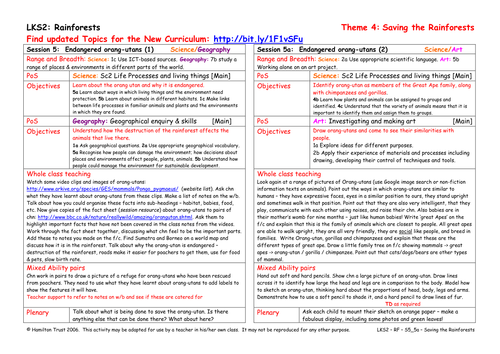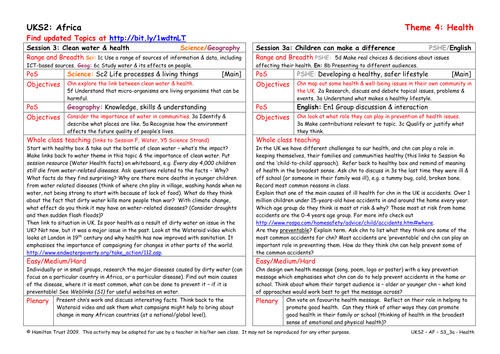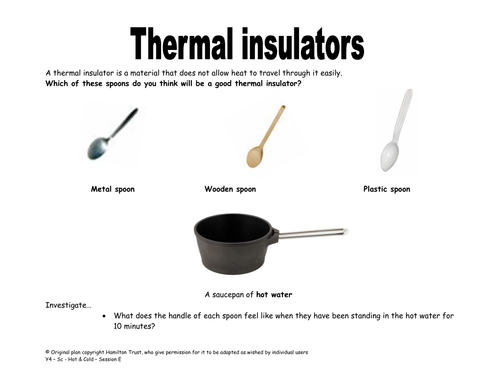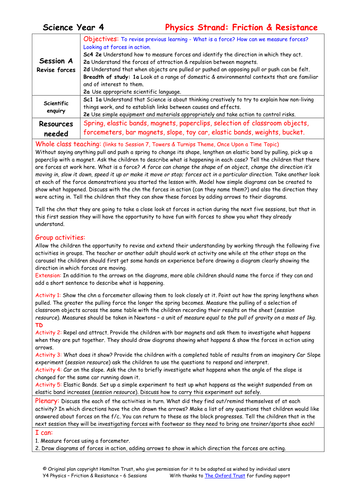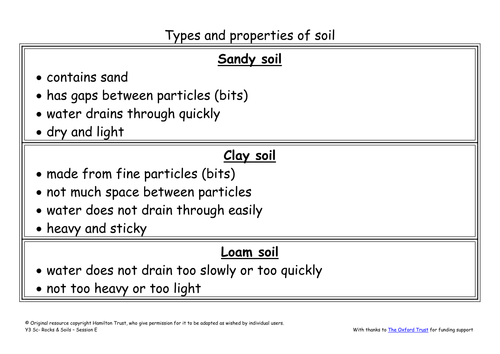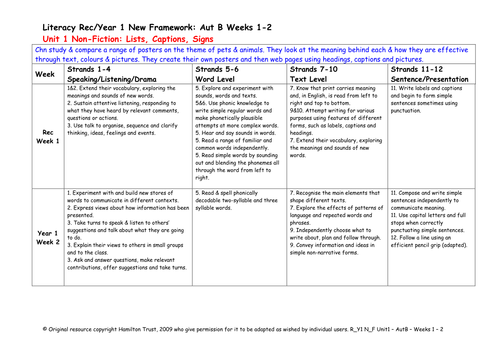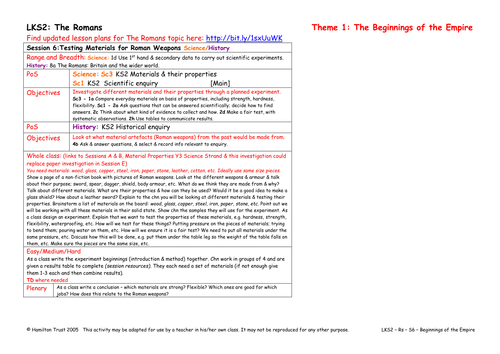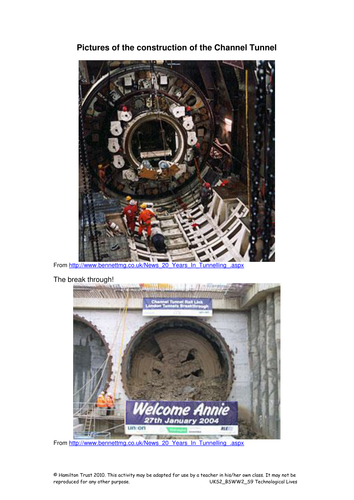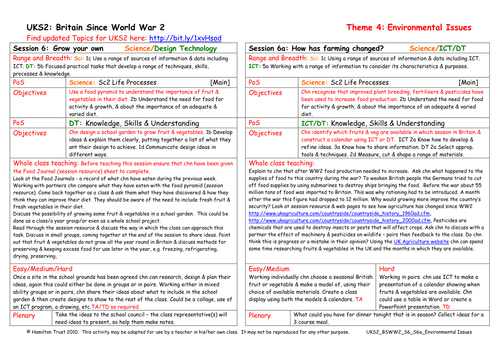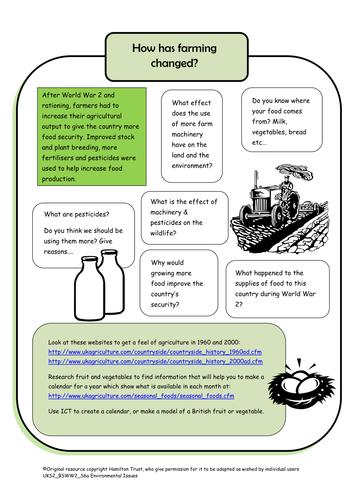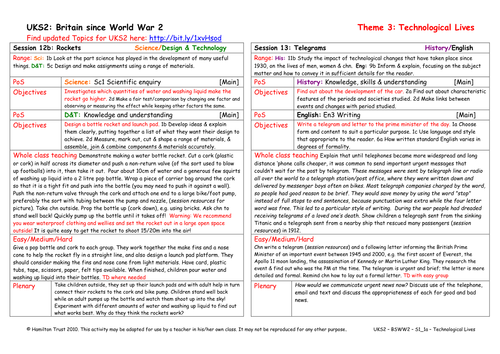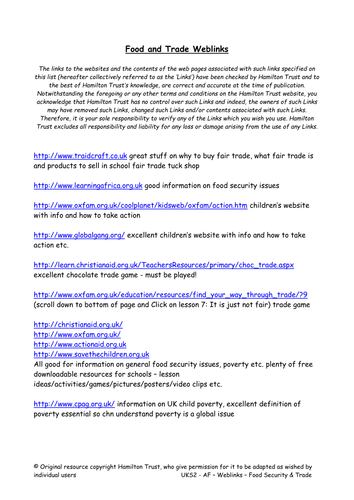
397Uploads
10045k+Views
11646k+Downloads
Primary science

Circuit challenges
In this session children apply their knowledge and understanding of circuits in other subject areas or through a variety of practical challenges. Iron nails, lemons and the steadiest of hands are needed in this session!
Suitable for Y6 pupils.

Adaptation
Did you know that Polar Bears don’t actually have white fur? But what they do have are many other adaptations that make them well suited to the Polar habitat. Children identify how other creatures have adapted to their habitat. Suitable for Y6 pupils.

Magnetic Attraction and Repulsion
Following session 7, children look at which types of material are attracted by magnets and which are not. Using an experimental approach, they also investigate the two magnetic poles on a magnet and what happens when like is placed against like, etc.
Suitable for years 3 and 4.

Roman Baths & Toilets
In this session children look at how the Romans improved hygiene arrangements across the empire by providing clean water and drains for sewage. Children investigate Roman toilets and baths, and discuss the positive effects of these innovations.
Suitable for years 3 and 4.

Sexual health
Session 1 - Have discussion about contraceptives as a way of preventing an unwanted pregnancy, but also explain that they can help protect against sexually transmitted infections and diseases. Use drama to practise saying no to peer pressure for smoking, alcohol or drugs. Children design warning labels.
Session 2 - Discuss one sexually transmitted disease / infection in more detail – HIV / Aids. Ensure children understand difference between having the virus and the syndrome. Watch a video by children living with an HIV mother and discuss stigma involved with HIV / Aids. Look at statistics and discuss Memory Books and World Aids Day.
Suitable for Y6 pupils.

Trip to Tropical Plant Centre
In this session children get up close and personal with tropical plants on a visit to a botanical garden, zoo or even a large garden centre. Children find out more about conditions for growth and the life cycles of different plants.
Suitable for years 3 and 4.

Endangered orang-utans (2)
Orang-utans are humans closest relative! Children find out more about the great ape and other great apes like chimps and gorillas, before using sketching and shading techniques to draw Orang-utans for display.

Clean Water and Health
Children research the impact of dirty water on health. They present research to the class and identify the biggest killer diseases. Opportunity here to link back to the water topic, and understanding of a preventable disease.
Suitable for years 5 and 6.

Thermal insulators & conductors
The properties of materials relate to their use as everyday objects such as spoons. Children test the insulating properties of various stirrers & discuss everyday uses of materials for thermal insulation or conduction. Look at diff meanings of word conductor. Suitable for Y4 pupils.

Revise forces
It’s forces ‘n’ fun in this session as the children get the opportunity to show what they already know. Through hands on activity they use slopes, magnets and elastic bands to revise previous learning. Forcemeters at the ready! Suitable for Y4 pupils.

Properties of soil
Discussing how soil is formed and why it is important to look after it. Find answers to questions on the web. Closely observe a soil sample and record what is found. Look at and draw a soil profile. Discuss erosion.
Suitable for Y3 pupils.

Why things float
Why do some materials/objects float or sink? Talk about different materials used to make boats & ships. Carry out investigations: can children make plasticine float? How many pebbles/marbles will sink a plastic container? What happens when you blow air into water? Suitable for Year 1 pupils.

Yr1 NF Unit 1 Lists, captions and signs
Children study and compare a range of posters on the theme of pets and animals. They look at the meaning behind each and how they are effective through text, colours and pictures. They create their own posters and then web pages using headings, captions and pictures.

Testing Materials for Roman Weapons
Children look at Roman weapons and discuss the materials that these would have been made from. They then carry out some experiments to discover which materials are most suitable for which purposes. They devise a series of fair tests and communicate results.
Suitable for years 3 and 4.

Crossing The Channel
Children discuss ways of crossing the Channel and then make a balloon-powered hovercraft.

Grow Your Own
Children compare a food journal they have kept with a food pyramid which gives the recommended servings of different food groups. The need to include fruit and vegetables is highlighted and children design a garden to grow their own.

How Has Farming Changed?
After WW2 and rationing farmers had to increase production. Children discuss where food comes from, and their views on the use of heavy farm machinery and pesticides. Children make a model of a fruit/vegetable or create an ICT presentation showing seasonal availability.

Rockets
Demonstrate a water rocket to children, they then make their own, adding fins, nose cone and design a launch pad.

Washing Machines and Spin Driers
Children look at labour saving household inventions, order picture of machines across the decades and then carry out an experiment to find out how spin driers work.

Food Crops and Fufu
Children are introduced to the idea that there are some staple foods which exist in all cultures. These are usually carbohydrates, and in many African countries they consist of foods made from Maize or corn. Children make fufu.

